OneSearch is the central index to the library's collections. There are 4 search options within OneSearch: Everything, Articles, Library Catalog, and Course Reserves. Each tab below details how to search in these options. Two separate tabs walk you through requesting something via Interlibrary Loan (ILL). The last tab, Using Advanced Search, describes ways to use that method across all 4 options.
Suggest a Topic: If you have a topic you would like to see represented in this guide, send us Feedback.
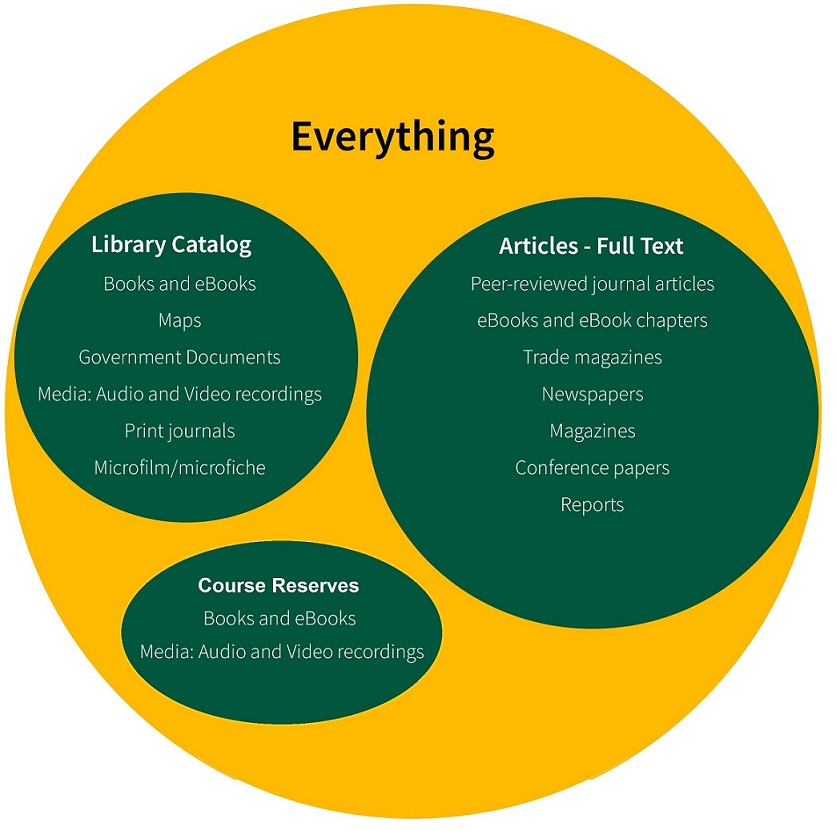
Everything, the default search, will search all of the collections at once. It can be overwhelming because of the sheer number of hits that result. You might consider limiting your search to the Library Catalog or Articles. It's up to you.
A search for climate change, from the search box on the library homepage, looks like this:

The search from here is immediately in Everything, which brings back, in this example, nearly 11 million results! That's too many. Searching from now on, once you're in OneSearch, allows you to tell the system where to search.
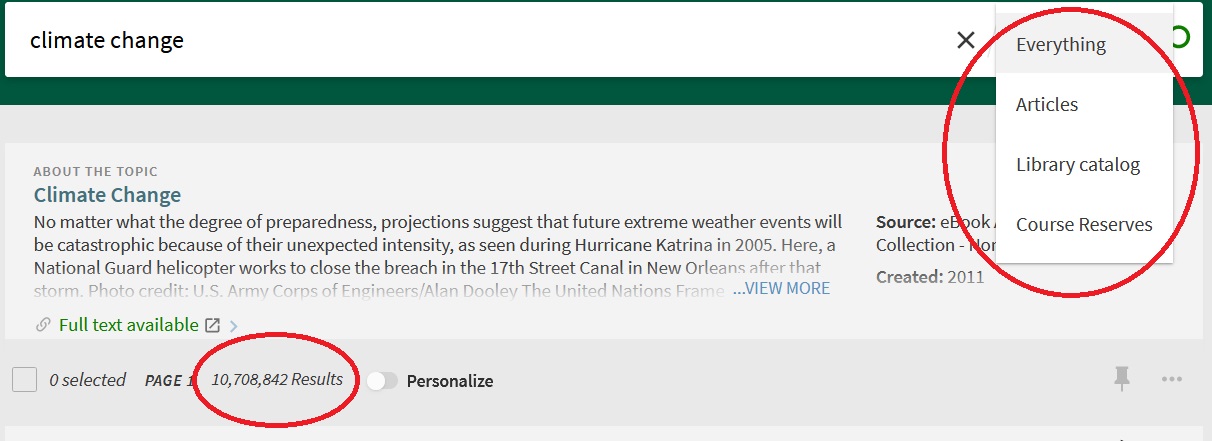
Let's alter our search by putting quotes around "climate change", because it's a phrase. We aren't interested in climate or change by themselves, but the phrase "climate change". We'll still search Everything, and get over 7 million this time, but then we'll narrow the results down even more.
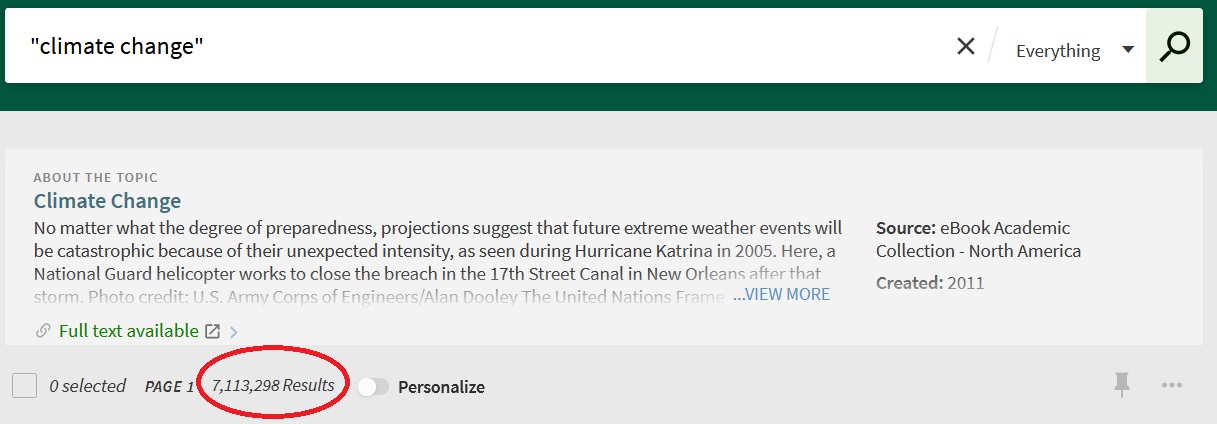
Off to the right-hand side of your over 7 million hits is "Refine your results". Here is where you have the power to significantly narrow down your reults. The image below, adjusted for space, indicates what you can narrow your results to.
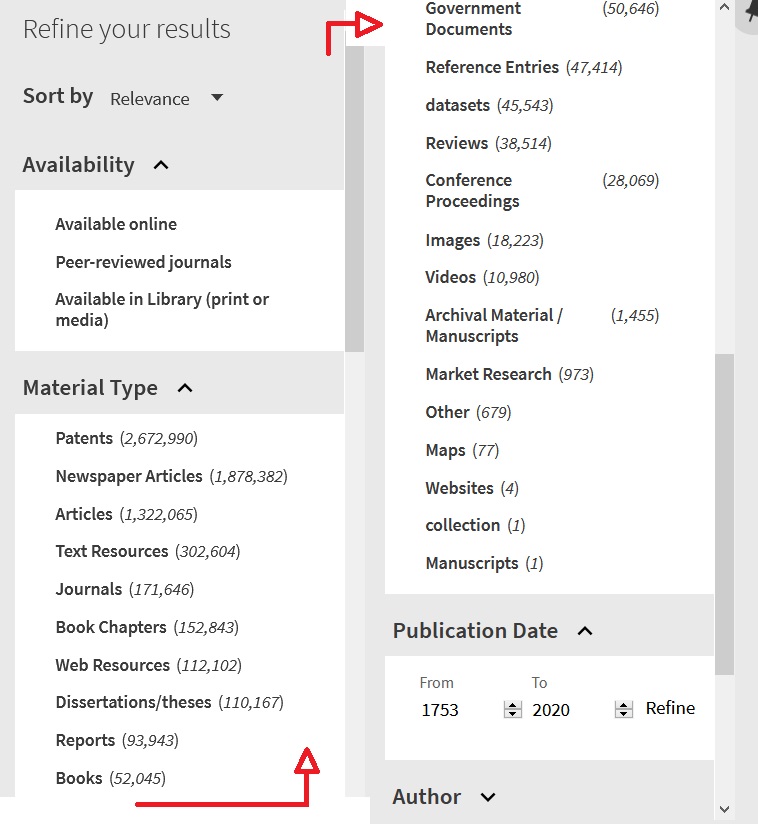
As you can see, there is a lot of sorting and narrowing down you can do. If you find something that is not available immediately, request it. The image below is what you'll see. The Interlibrary Loan tab on this guide walks you through this process.

Articles searches the full-text of peer-reviewed journals, magazines, newspapers and other periodicals. It also searches the full-text of ebooks, streaming video, dissertations/theses, conference papers, and government documents. It really is a lot more than what you might consider articles. Keeping with our "climate change" example, let's limit the results to articles:
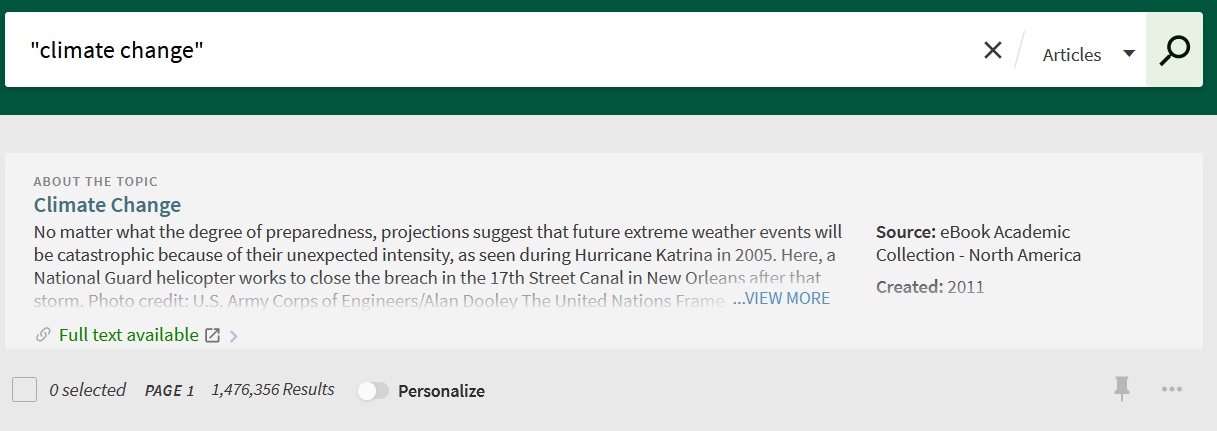
To limit these results to Peer-Reviewed Journals, Click the Peer-reviewed journals link on the right-hand side to limit results to this type of material. If limiting to multiple availability options, click each checkbox then click Apply Filters.
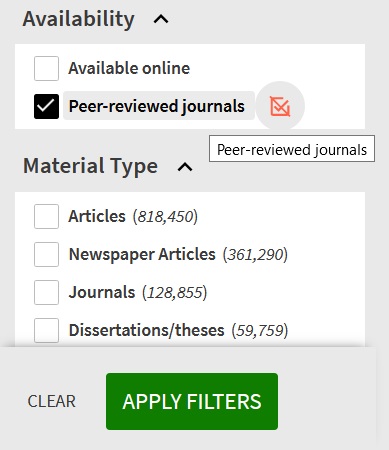
This will further narrow down your results--can you see a pattern? The more you select, the narrower your results. Articles available online will indicate such ![]() and might require you to log in with your NMU username and password and 2-factor authentication to a database:
and might require you to log in with your NMU username and password and 2-factor authentication to a database:

If you see an article that you want but OneSearch indicates that there is no online access, request it. The image below is what you'll see. The Interlibrary Loan tab on this guide walks you through this process.

Library Catalog searches the complete holdings of the library's print and electronic collection. This includes books, book chapter titles, video and sound recordings, maps and government documents, and the Pre-K thru 12 collection. You will not find articles in a Library Catalog search. Video: How to find a book (1:18). Video: How to find an ebook (1:45).

The default list is relevance--you may want to sort by date or title--it's up to you. You also can limit your results to what we have physically in the library or results that are electronic only (you can view these anywhere on your device) as well as the material type.
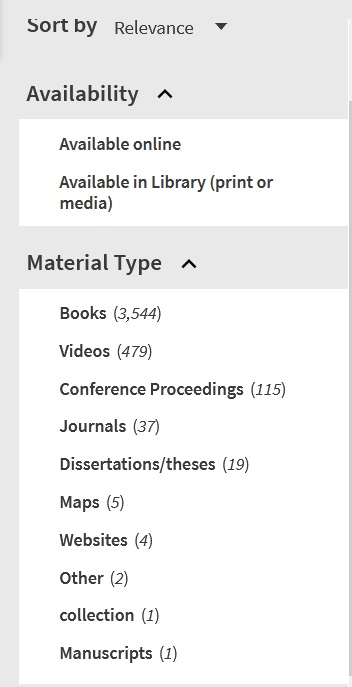
You are also able to limit your search to a particular author, date, language, etc, including location.
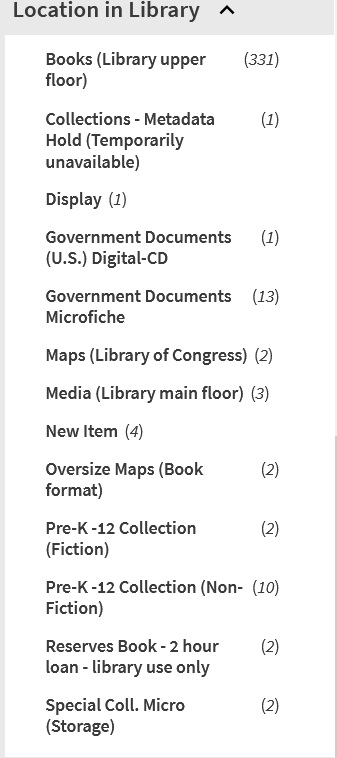
Clicking on the title of a book (or DVD or whatever NMU has in its physical collection) brings up more information. In this example, this publication is both here at the library and online:
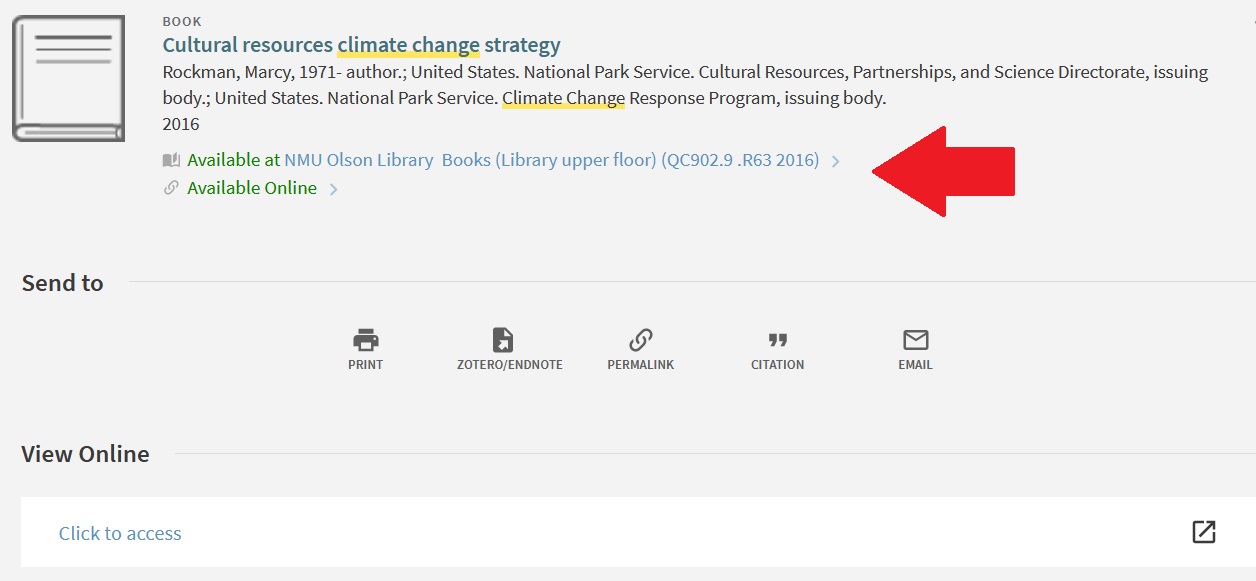
Limit results to: Holocaust Collection. As part of your search include the phrase "NMU Holocaust"., and you can further limit your results to various Material Types (books, videos, etc.) in the "Refine your results" section.
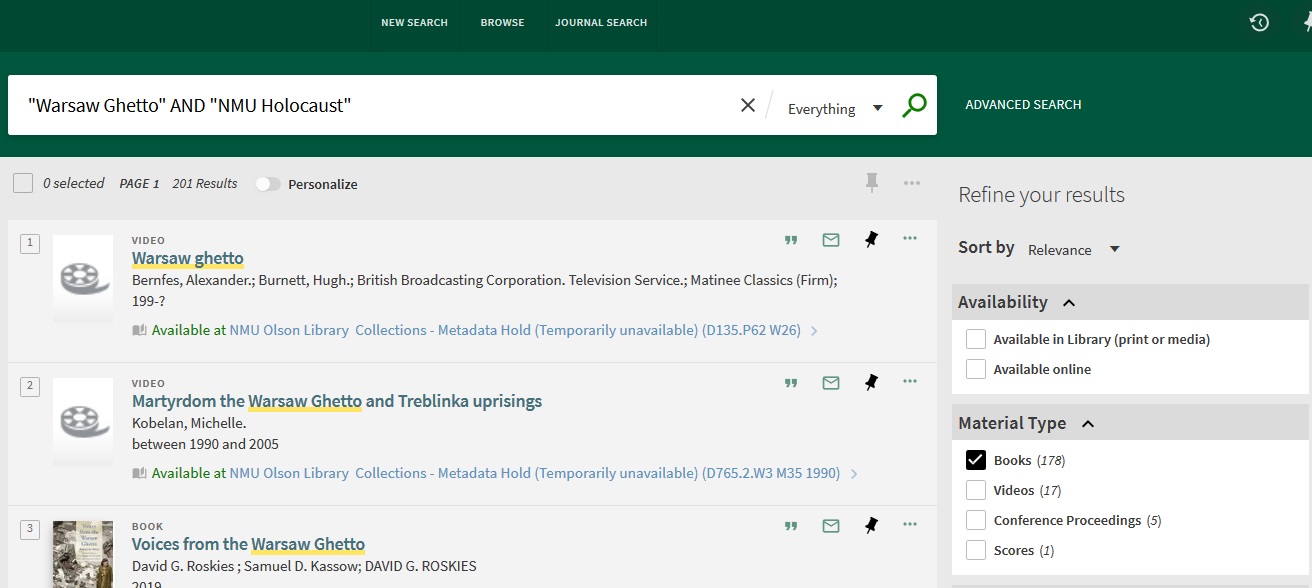
Course Reserves, will look for those items (usually books or a video) set aside by your professor for a specific course. These often have a limit of 2 hours in-library use only. To search, simply type in your class number. For example, DFST 252. The material is available at the service desk.
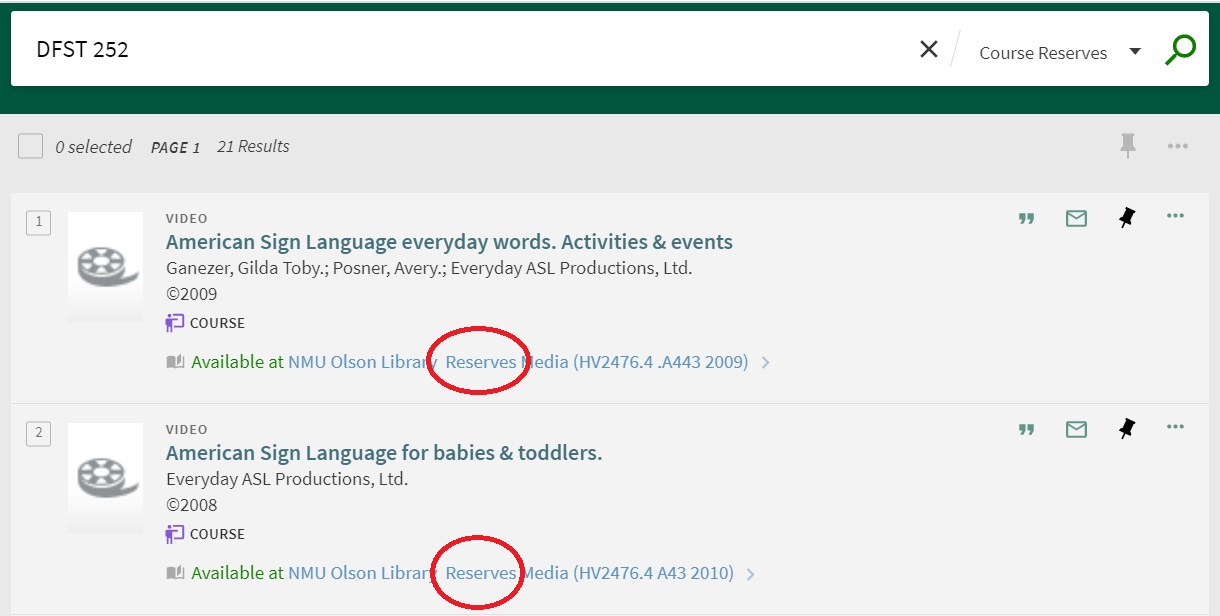
In addition to requesting a book through OneSearch, you can also search for and request books through MelCat and WorldCat directly.
As much as you have access to electronically, even more is available elsewhere with just a short wait. Within OneSearch it is easy to request books or media or articles that are owned by another library. Here is a book we do not have:
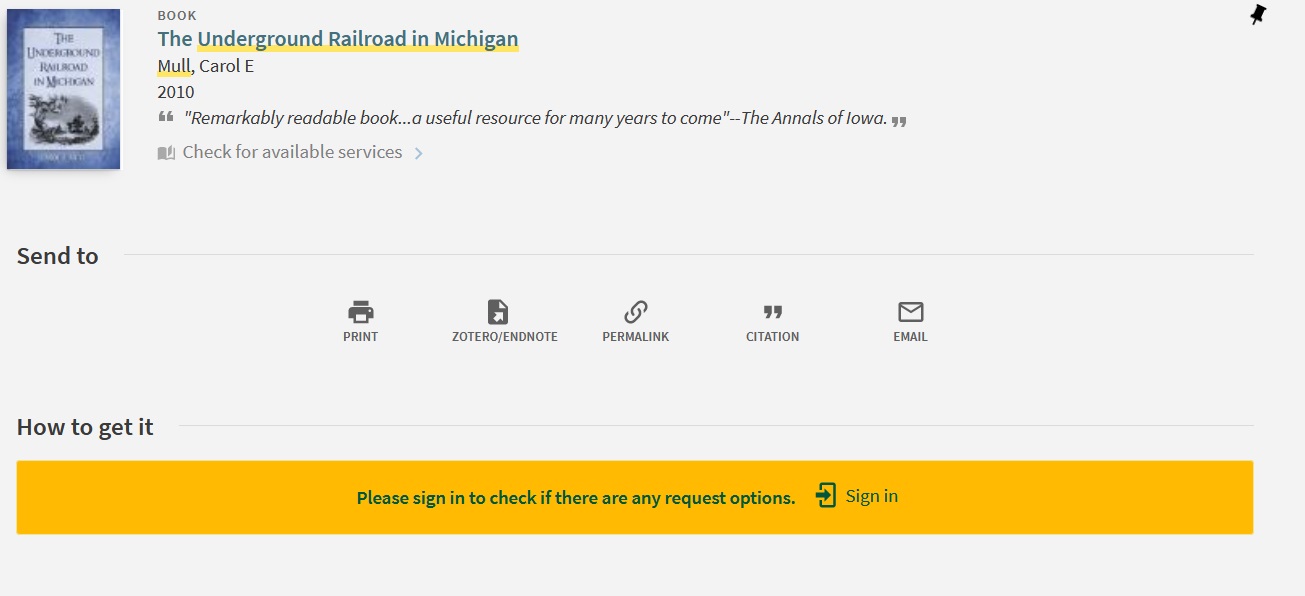
There is no call number and no indication of online access. "Check for available services" really means "Pleases sign in to check if there are any request options". Click the Sign in text. You will be prompted to sign in with your NMU credentials and, if you've activated it, your 2-factor authentication:
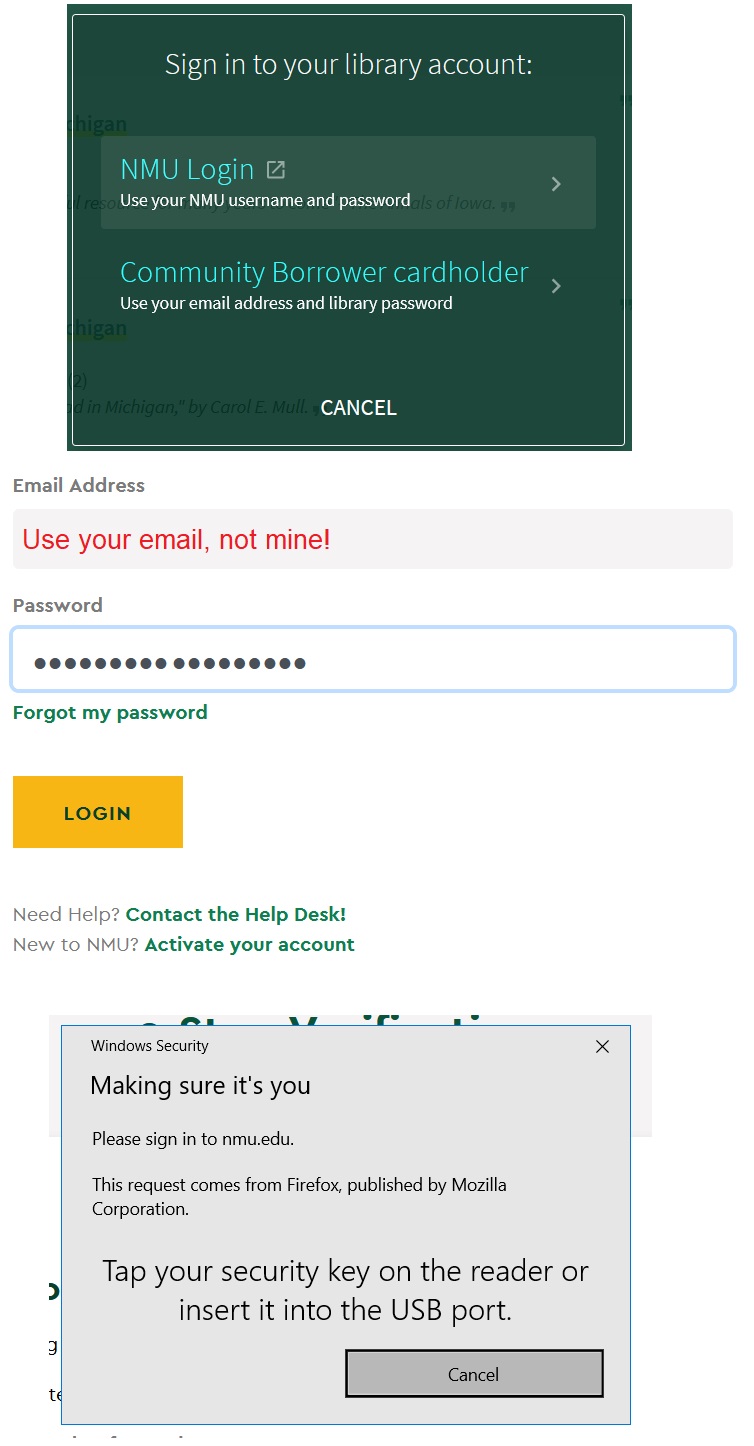
Once you are signed in, you have a choice on which kind of ILL service you'd like. Request @ MelCat is a statewide system for Michigan libraries (the item might arrive faster), while the @ Interlibrary is nationwide.
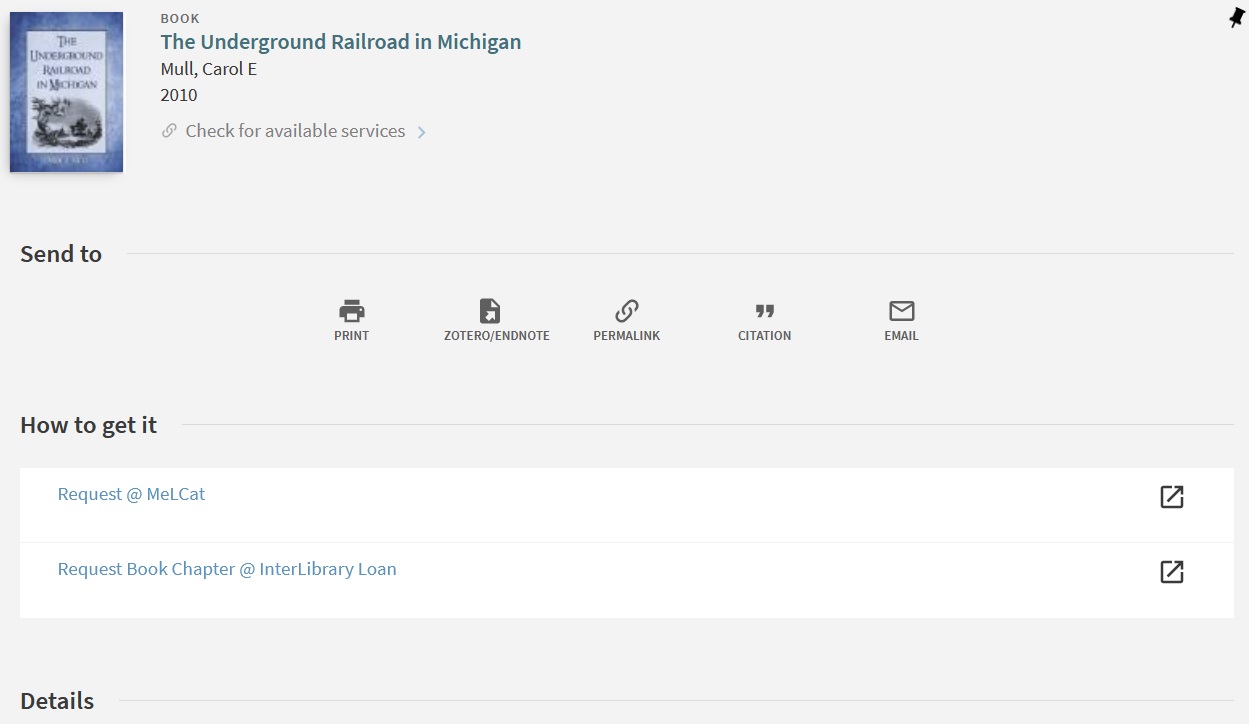
And here I have to stop and say that we are working out some bugs. If you have gotten this far within OneSearch and have noticed "things aren't right", you are correct. Give us a call or Ask Us (right hand side) of screen, and we'll sort things out. We appreciate your patience.
Within OneSearch (and most databases), requesting an article that NMU does not have is the same as requesting a book we do not have. Video: Interlibrary loan of an article (some sign-in images have changed since) (2:36). Within databases, look for the Get it@NMU link; within OneSearch, "Check for available services" really means "Pleases sign in to check if there are any request options". Click the Sign in text. You will be prompted to sign in with your NMU credentials and, if you've activated it, your 2-factor authentication:
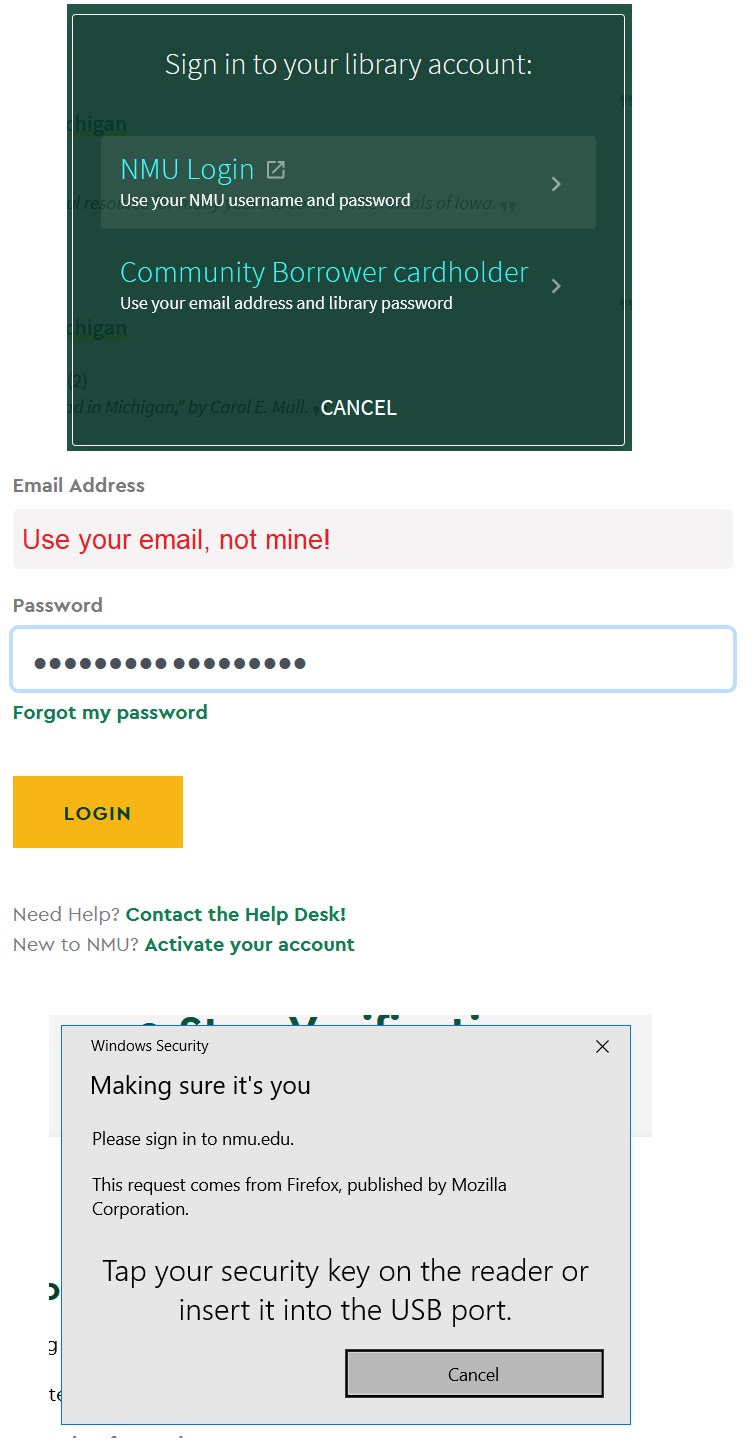
Once you have signed on, you will be prompted to pick a method: pick Request Article @ InterLibrary Loan. MelCat does not lend articles.
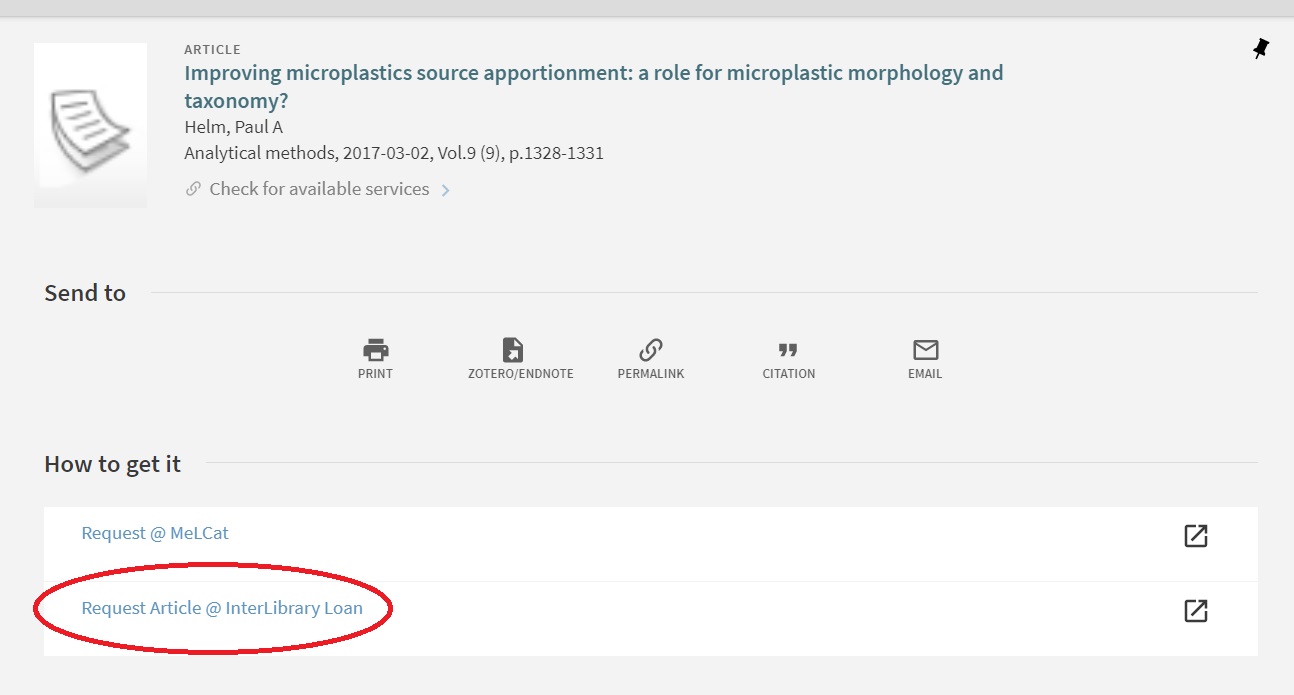
Clicking that link opens up another window. All that remains is for you to type in your phone number and select request. We'll take it from here. You will get an email immediately telling you that we have received it, and in a few days, an email with a link to the article. The video at the top of this tab explains it a bit more.
To the right of the search box, once you have made a search, is Advanced Search. Although most people continue to use the single search box, it is to your advantage to switch to the advanced search screen. It may look intimidating, but it gives you the means to make a better search. Each of the 4 search options can be searched this way.
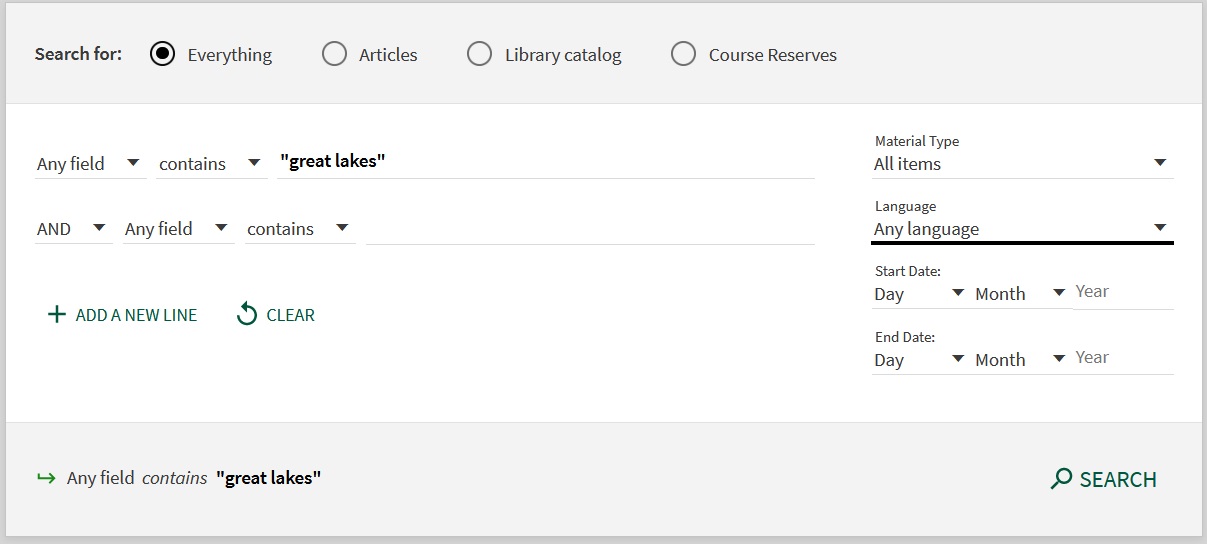
You can change where you want to search. This is helpful in narrowing down resources to relevant ones. For example, in the search below, "great lakes" has been changed to subject, microplastics has also been added as a subject, and a third line has been added with fish. Your searches can be created the same way.
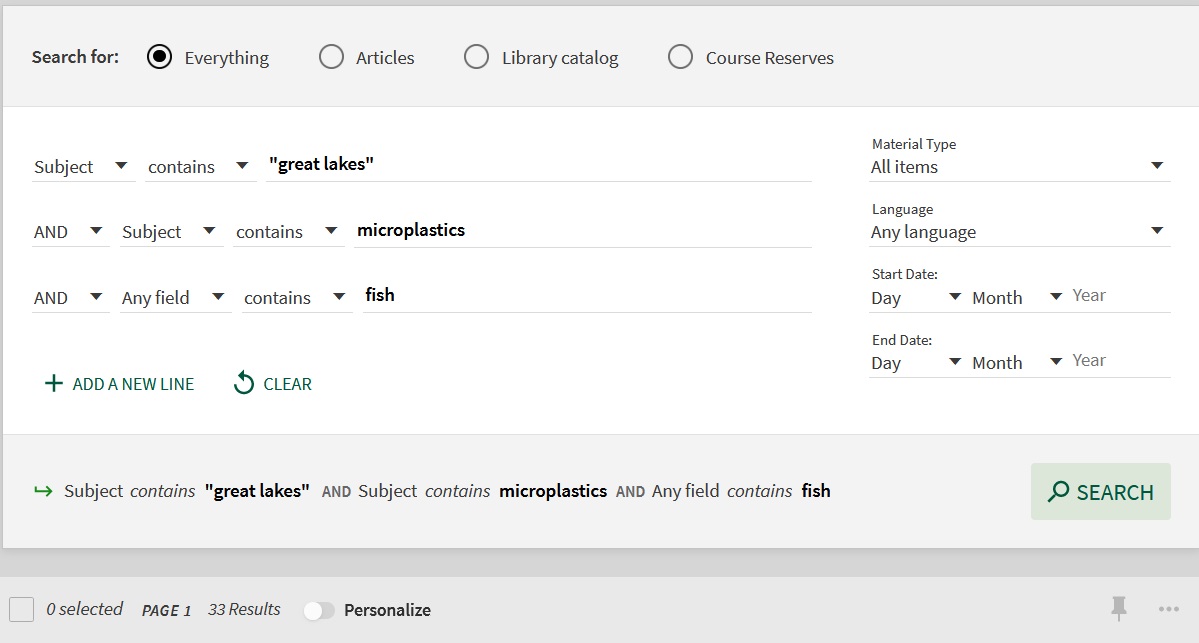
33 results is a manageble number to look through. Further narrowing down is possible (material type, date, availability, etc).
